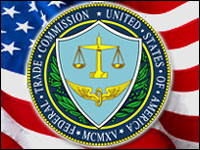
Google and Apple are both wildly successful Web 2.0 companies that can be considered market makers in their respective fields. Another similarity that is less obvious — but apparently very compelling to the Federal Trade Commission — is their taste in corporate leadership. Google CEO Eric Schmidt and Genentech CEO Arthur Levinson sit on both of the companies’ boards of directors.
The FTC is investigating whether this is a violation of U.S. antitrust law, according to news accounts.
At face value, it is difficult to see how Google and Apple could fall afoul of antitrust law. Apple is a computer and musical device maker. Google is, well, now a lot of things — but clearly its primary focus remains online search and advertising.
Indeed, the two could be seen as competitors in some areas — for example, Google’s Android OS powers mobile devices that compete with Apple’s iPhone.
A Legal History Lesson
Still, antitrust law does allow room for an FTC investigation under these circumstances, explained Raymond Van Dyke, a partner with Merchant & Gould.
“The Clayton Act of 1914, particularly Section 8, governs situations where there are interlocking directors, such as where an individual serves on the boards of two competing companies,” Van Dyke told the E-Commerce Times.
The Act was drafted in an age when Congress had grave concerns about the concentration of economic power among small groups, and the Clayton and Sherman Acts were designed to nip potential incipient antitrust violations in the bud, Van Dyke explained.
“As this is one of the so-called per se violations, the government here has to merely show the potential or opportunity for collusive behavior, particularly anticompetitive behavior,” he commented.
There are safe harbors that allow interlocking boards, according to Van Dyke, but these exceptions are for companies with low level sales and net worth — hardly the case here.
iPhone vs. Android
The Clayton Act specifically restricts interlocking directors when the revenues from competing products comprise more than 2 percent of the revenues of the respective companies, Christopher Collins, an attorney with Vanderpool, Frostick & Nishanian, told the E-Commerce Times.
“iPhone meets this definition and, I suppose, the FTC is concerned that Google’s Android may reach that benchmark in the future,” he said. “Since these products are generically — or potentially — directly competitive, the FTC believes that it has grounds for an investigation.”
Flimsy Grounds
Whether those grounds are actually substantial enough to warrant an FTC inquiry, however, is debatable.
“The fact of the situation is that iPhone [as a product or platform] does not compete directly with Android, which is a mobile platform using the Linux kernel,” Collins said. “As an open source offering, I do not believe that Android seriously competes with the iPhone platform.”
Based on the technical issues, “the FTC could probably spend its time chasing after more serious threats to the U.S. economy than worrying about Director Schmidt’s work with Google and Apple,” he remarked.
There is “zero indication” of any anticompetitive behavior, Van Dyke acknowledged, but the potential for collusion raises a flag; hence, the Federal Trade Commission scrutiny.
“Unfortunately, good board members may have to resign,” he said. “Many have commented that with the Obama administration’s harder line on antitrust regulation, we shall see many more of these and other antitrust challenges to come.”
Indeed, Google — which appeared to be closely aligned with the Obama campaign last year — has come under regulatory scrutiny on several fronts.
Last week, a news leak revealed that the Department of Justice was looking into the settlement agreement that Google negotiated with representatives of book publishers and authors to put their works online.
The Justice Department was also very interested in Google’s proposed alliance with Yahoo, a deal that was eventually derailed, possibly because of the looming antitrust inquiry.














































Social Media
See all Social Media